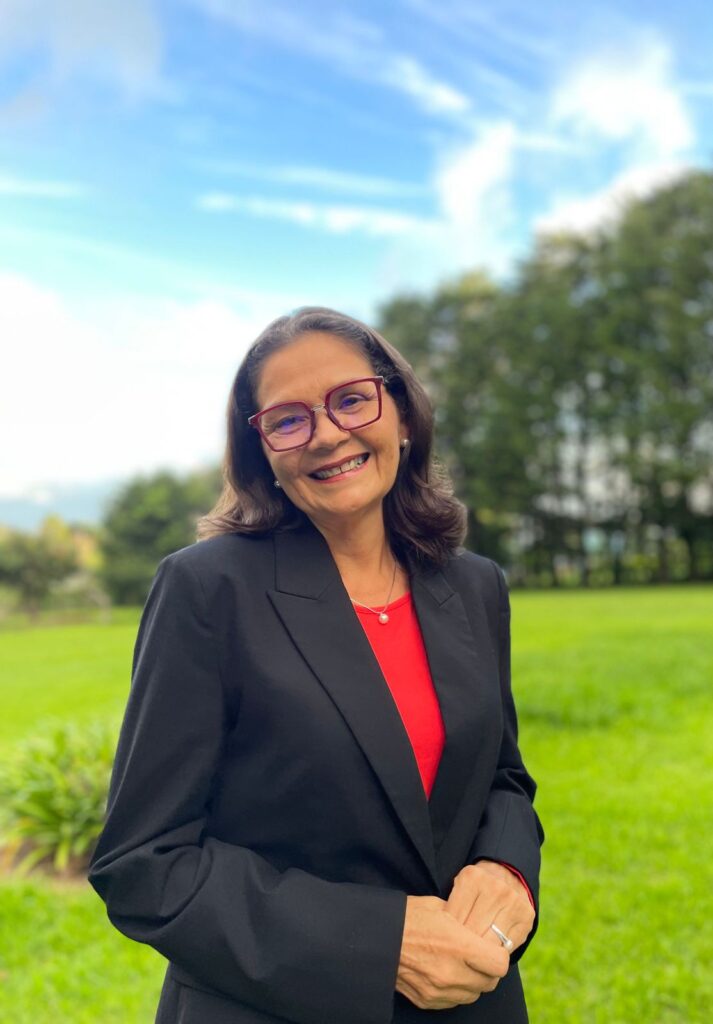
For the past five years, the Palma Futuro project has built up robust social performance systems to improve conditions for workers at every level of the palm oil supply chain in Colombia and Ecuador through engagement inside and outside of the workplace.
We spoke with Palma Futuro’s Lead Trainer, Florencia González, about her experience working with palm oil producers and extraction mills in Ecuador and Colombia, and the impact of the project.
What was your role in the Palma Futuro project?
I was a lead trainer in the Palma Futuro project. In this role, I provided training and assistance to stakeholders throughout Colombia and Ecuador in the implementation of social compliance systems. For example, I trained and worked closely with Social Performance Teams, made up of both managers and worker representatives, at palm oil mills and large farms, and with the owners and managers of small palm farms, to implement social compliance systems. Additionally, I implemented the Training of Trainers program to mill staff who work directly with palm fruit producers to deliver similar training in their supply chain. I also provided training to stakeholders such as schools, government agencies, and industry associations related to the palm industry.
Why do you think Palma Futuro’s mission was important for the palm oil industry in Colombia and Ecuador?
From what I saw, the industry in these regions had been very focused on environmental and economic sustainability, because these are the issue areas that have historically been the priority for the global palm oil industry. While there was some focus on social aspects, a deeper understanding of the importance of integrating human rights at work was needed.
Palma Futuro’s mission was to help stakeholders gain a deeper understanding of the importance of decent working conditions, respecting human rights at work, and how to implement social compliance systems through new or existing management systems. The trainings we provided emphasized that the social aspect is integral to the sustainability of a company, in addition to environmental and economic sustainability.
On smaller plantations, this information was new to many of them, and our method was adaptable to their size and needs. By working directly with plantations, we were able to emphasize the importance of continually respecting human rights at work, while providing the tools for them to do so. This provided them with a solid foundation that can be built upon as their organization grows.
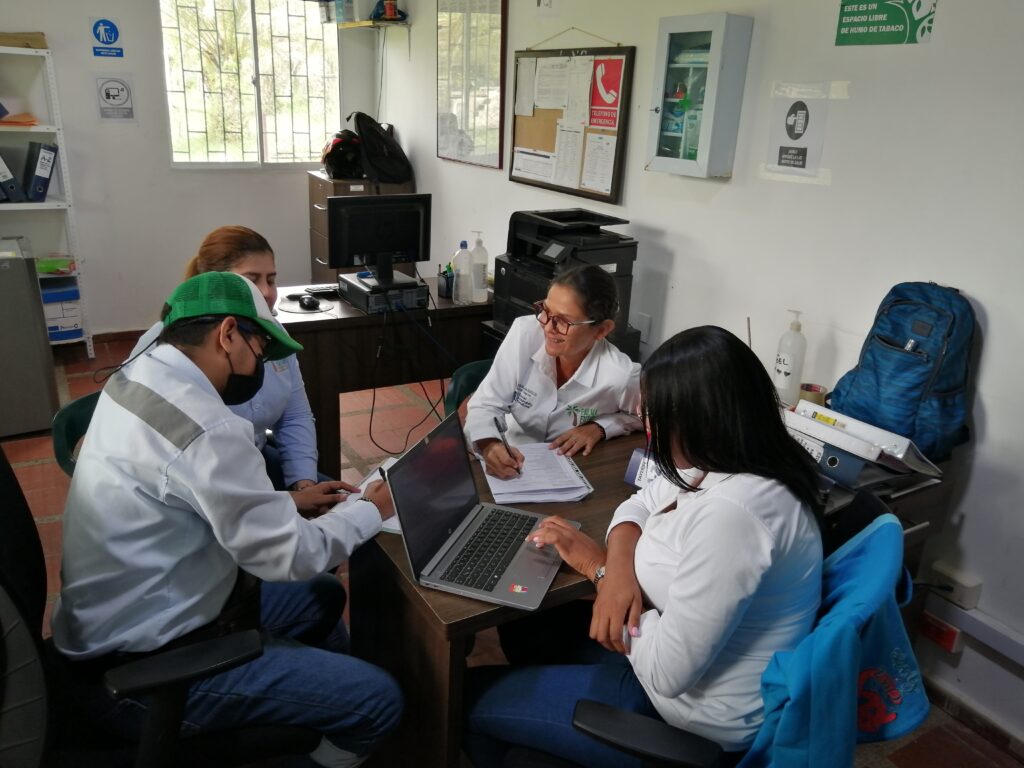
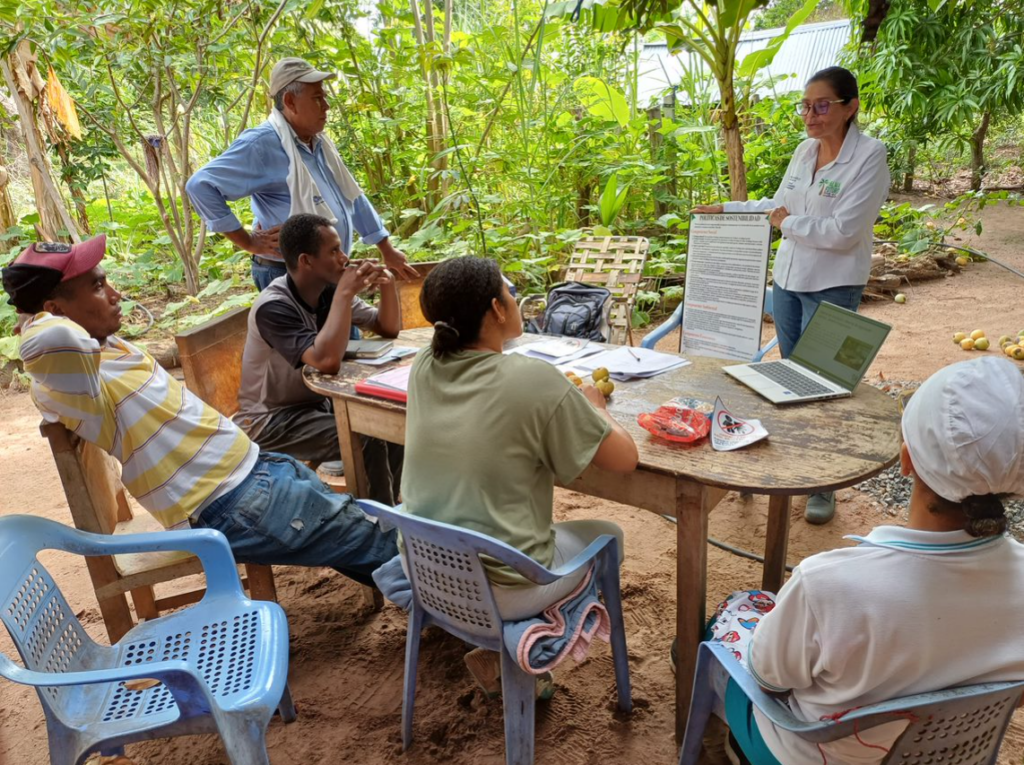
Now that the project has finished, how have you seen its impact?
What was great about the project was that we were able to see how it changed the livelihoods of owners, suppliers, and workers. Particularly through our capacity building, we were able to see how people implemented what they learned in our trainings and used the tools we provided.
For example, I worked closely with the Social Performance Teams (SPTs) at the mills as they implemented and strengthened their company’s social compliance systems. At Palmagro, the SPT leader really internalized the importance of the social compliance system and embraced it in her daily work, transmitting it throughout the mill and their suppliers. This industry is mainly dominated by men, so to have a woman at a palm oil mill really embrace this effort and make a difference was very special. This dedicated adoption of social compliance systems at Palmagro and by staff at our other partner mills led to many improvements for workers, such as new and improved cafeterias, more appropriate PPE, new instruments to do their jobs, regulated working hours and shifts, and more.
I also led the Training of Trainers (ToT) programs at some partner mills, which were very impactful. The participants were mainly agronomic technical experts who provide environmental assistance to suppliers. They saw how the social aspects were interrelated with environmental and economic sustainability and were excited to integrate it into their work. Now when they visit suppliers, they not only check on the plants but also for issues such as working hours, health and safety, and working conditions.
In Ecuador, I worked with a group of suppliers who, at first, felt like implementing the social compliance systems on their farms was impossible. After providing training and examples of how implementing these systems can benefit their farm, they really started to understand its importance. They also saw how having policies, training employees, and continual follow-up to implement the social compliance systems actually saves them time, because they don’t have to keep dealing with the same problems again and again.
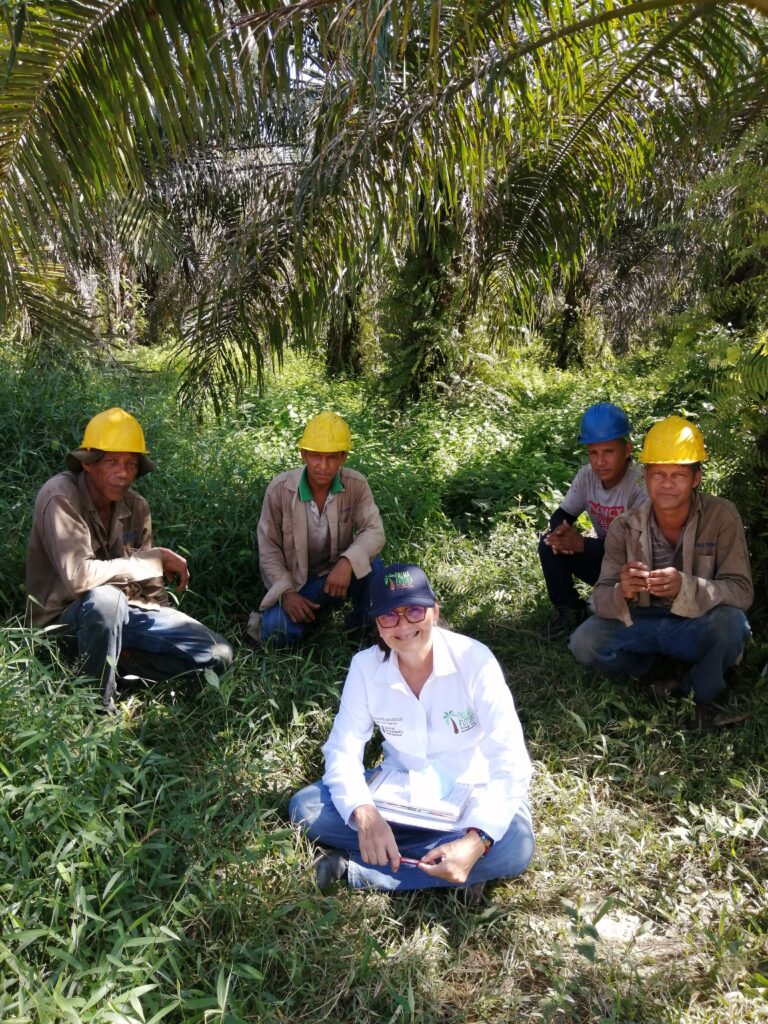
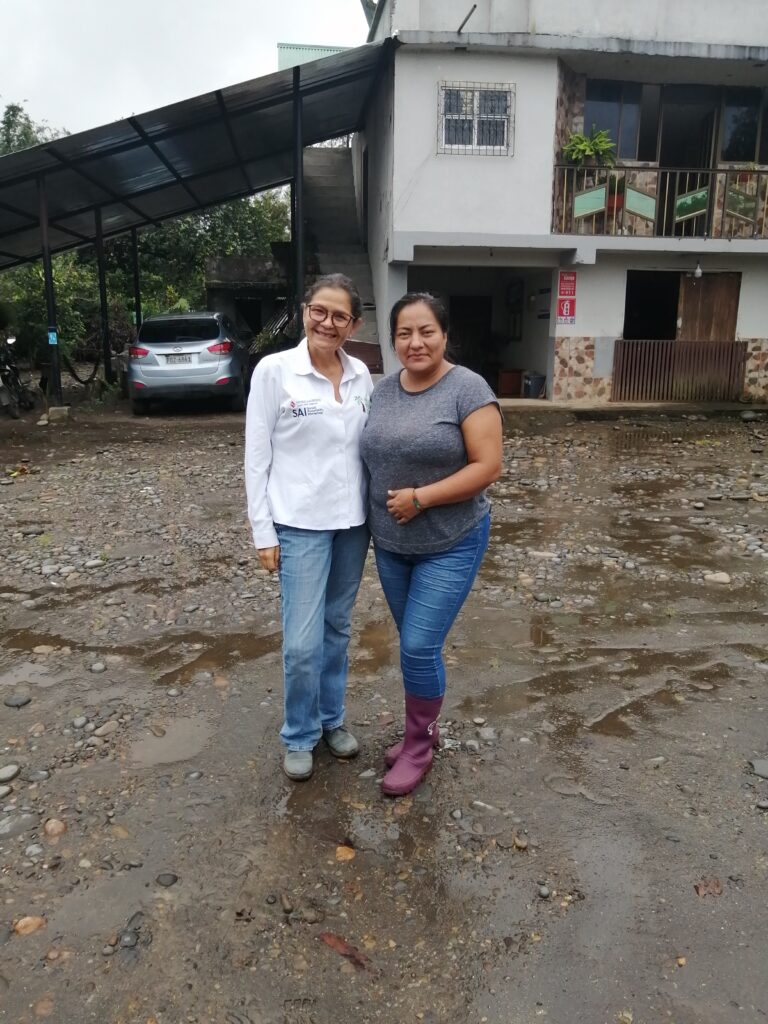
Was there a moment during your work with Palma Futuro that you found particularly impactful?
There was a women’s group for oil palm plantation owners that I worked with in Ecuador. When I first started talking with them about social compliance systems, they immediately understood its importance, but it was difficult at the beginning to find time for the group to come together for trainings – many were mothers with small children. After realizing this issue, we found a space with childcare where we could provide training while their children played or did their homework. This made all the difference and through these ongoing trainings, the women in this group felt very empowered as female plantation owners and more confident to make a difference on their farms, which was very special.
Now after finishing the project, I’m still receiving questions and comments from the people we trained. They reach out to tell me how much the training has helped them and how they are applying it in new situations, at new companies, and more. Seeing how this work has spread throughout the industry and how the mission is living on beyond the project is very impactful to me.
What is your background and how did you become involved with Palma Futuro?
My background is in sustainable tourism – I have a master’s degree in Sustainable Tourism Management and a specialization in Social Responsibility. After mainly focusing on environmental and economic sustainability, I became an SA8000 lead auditor to include the social aspect to my work. I am also a certified social accountability consultant and have consulted with different companies around Latin America to implement social compliance systems. This led me to working with SAI and Palma Futuro, which gave me the opportunity to apply my consulting experience and background in sustainability in a new way.
Funding is provided by the United States Department of Labor under cooperative agreement number IL-32820-18-75-K. 100 percent of the total costs of the project is financed with federal funds, for a total of 6,000,000 US dollars. This material does not necessarily reflect the views or policies of the United States Department of Labor, nor does mention of trade names, commercial products, or organizations imply endorsement by the United States Government.
